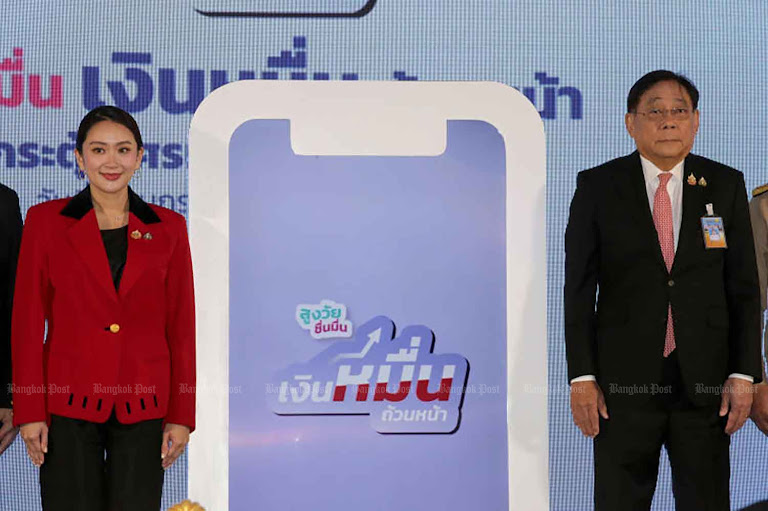Thailand Delays Handouts, Saying Economy Needs Long-Term Plans
Facing external pressures and expert advice, the Thai government postpones promised handouts, prioritizing long-term economic strategies over immediate stimulus.

The Pheu Thai party came to power in Thailand with a bold promise: a 10,000-baht cash handout designed to stimulate the economy and put money directly into the hands of its citizens. But, as so often happens in the messy reality of governance, that promise is running into the brick wall of unforeseen circumstances, shifting economic winds, and the inherent trade-offs of public policy.
As reported by the Bangkok Post, Prime Minister Paetongtarn Shinawatra is now defending the government’s decision to postpone the third phase of this ambitious program, citing “uncontrollable circumstances” that make implementation impossible, at least for now. This isn’t just a story of a broken promise; it’s a glimpse into the complex dance between political pledges and the often-unpredictable realities of economic management.
The stated reason for the postponement hinges on the US trade tariffs, which are apparently affecting numerous countries. While the direct causal link between these tariffs and the handout’s postponement requires further unpacking, it points to the interconnectedness of the global economy and the vulnerability of domestic policies to external shocks. It also raises the question of whether the Pheu Thai government adequately accounted for such potential disruptions when crafting its initial policy platform.
Beyond the immediate justification, the situation highlights a more fundamental tension: the trade-off between immediate, direct assistance and long-term structural investments. The National Economic and Social Development Council and the Bank of Thailand have reportedly recommended diverting the 157 billion baht earmarked for the handout towards more “urgent” issues.
This raises a critical question: is a short-term cash infusion the most effective way to boost the Thai economy, or would that money be better spent on infrastructure development and human resource investment? The government, at least for now, seems to be leaning towards the latter.
This decision, of course, carries political risks. The Pheu Thai party risks alienating voters who were counting on the handout. However, as Shinawatra argues, the party has assessed the situation and believes its revised approach offers a more “practical” solution. It’s a gamble, betting that voters will prioritize long-term stability over immediate gratification.
Here’s a breakdown of some of the factors contributing to this policy shift:
- External Economic Pressures: The US trade tariffs are a major factor.
- Conflicting Expert Advice: The National Economic and Social Development Council and the Bank of Thailand are advocating for alternative spending priorities.
- Structural Issues: A desire to address underlying economic problems instead of simply providing a temporary stimulus.
- Fiscal Constraints: The central budget allocation of 157 billion baht must be spent by a specific deadline, forcing the government to prioritize.
The third phase of the digital wallet project, aimed at young people aged 16 to 20, is particularly vulnerable to criticism. The government faces pressure to justify spending 27 billion baht on a program with potentially limited economic impact, especially when more pressing needs exist.
“The sum of 157 billion baht must be spent where the country will receive maximum benefits. If the economy is in good shape, the handout scheme will be the best measure. But in current circumstances, a handout programme is not the best economic stimulus.”
This quote, attributed to Prime Minister Shinawatra, encapsulates the crux of the issue. It’s a tacit acknowledgement that policy decisions must be adaptable and responsive to changing circumstances, even if that means breaking campaign promises. Whether this flexibility will be viewed as pragmatism or betrayal remains to be seen.









